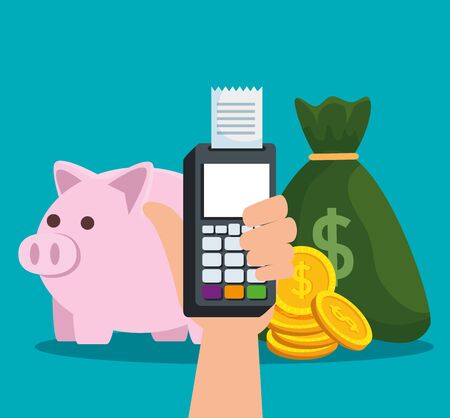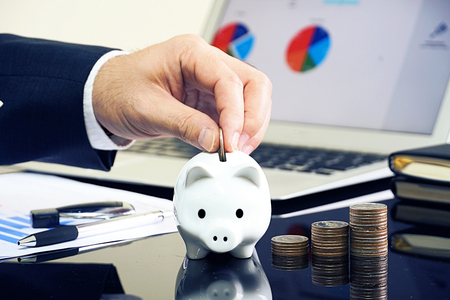1. Introduction to Budgeting Apps
Managing your finances can be overwhelming, especially when juggling multiple expenses, savings goals, and unexpected costs. This is where budgeting apps come in handy. These apps simplify money management by helping you track your income, expenses, and financial goals all in one place.
Why Use a Budgeting App?
Budgeting apps provide several benefits that make managing your money easier and more efficient. Here are some key reasons why you should consider using one:
(1) Automated Expense Tracking
Most budgeting apps link directly to your bank accounts and credit cards, automatically categorizing your transactions so you can see exactly where your money is going.
(2) Goal Setting and Progress Monitoring
Whether youre saving for a vacation, a new car, or an emergency fund, budgeting apps allow you to set financial goals and track your progress over time.
(3) Spending Insights and Reports
Many apps provide detailed reports and visual charts that help you identify spending patterns, making it easier to adjust your habits and save more.
(4) Bill Reminders and Alerts
Avoid late fees by setting up bill reminders within the app. Some apps even send alerts if youre close to exceeding your budget.
How Budgeting Apps Can Help You Stay on Track
The right budgeting app not only helps you manage daily expenses but also keeps you accountable for long-term financial goals. By providing real-time updates on your spending and savings, these apps encourage better financial habits without the hassle of manual tracking.
Comparison of Key Features
| Feature | Benefit |
|---|---|
| Automated Expense Tracking | Saves time by categorizing transactions automatically |
| Goal Setting | Keeps you motivated with clear savings targets |
| Spending Insights | Helps you identify areas where you can cut costs |
| Bill Reminders | Avoids late payments and additional fees |
| User-Friendly Interface | Makes budgeting simple for beginners and experts alike |
If youve ever struggled to keep track of where your money goes each month, a budgeting app could be the perfect solution. In the next sections, we’ll explore some of the best budgeting apps available today and how they can help improve your financial management.
Key Features to Look for in a Budgeting App
Choosing the right budgeting app can make a huge difference in managing your money effectively. Here are some key features to look for when selecting the best app for your needs.
Expense Tracking
A good budgeting app should automatically track your expenses, categorize them, and give you insights into your spending habits. Some apps allow you to manually enter transactions, while others sync with your bank accounts to update your expenses in real time.
Bill Reminders
Late fees can add up quickly, so having a budgeting app that sends bill reminders is essential. Look for an app that notifies you when bills are due and allows you to set up automatic payments if needed.
Goal Setting
Setting financial goals can help you stay on track with saving and spending. Many budgeting apps offer goal-setting features, allowing you to allocate funds toward savings goals such as an emergency fund, vacation, or major purchase.
Bank Integration
The ability to link your bank accounts, credit cards, and even investment accounts makes managing your finances much easier. A budgeting app with bank integration can provide real-time updates on your balances and transactions.
User-Friendly Interface
A well-designed interface makes it easy to navigate the app and understand your financial data. Look for an app that presents information clearly and offers customization options to suit your needs.
Security and Privacy
Your financial data is sensitive, so security should be a top priority. Choose an app that offers encryption, two-factor authentication, and other security measures to keep your information safe.
(1) Comparison of Key Features
| Feature | Description |
|---|---|
| Expense Tracking | Automatically records spending and categorizes expenses. |
| Bill Reminders | Sends notifications for upcoming due dates. |
| Goal Setting | Allows users to create savings or debt payoff goals. |
| Bank Integration | Syncs with bank accounts for real-time updates. |
| User-Friendly Interface | Presents financial data in an easy-to-understand format. |
| Security & Privacy | Uses encryption and authentication for protection. |

3. Top 10 Budgeting Apps for Better Money Management
Managing your finances can feel overwhelming, but the right budgeting app can make all the difference. Whether you’re looking for a simple way to track expenses or a comprehensive tool to plan your financial future, there’s an app for you. Below is a curated list of the top 10 budgeting apps available, highlighting their key features and benefits.
(1) Mint
Mint is one of the most popular budgeting apps, offering automatic expense tracking, bill reminders, and credit score monitoring. It syncs with your bank accounts to give you real-time insights into your spending habits.
(2) YNAB (You Need a Budget)
YNAB follows a proactive budgeting approach, encouraging users to assign every dollar a job. Its great for those who want to gain better control over their money and reduce financial stress.
(3) EveryDollar
Created by financial expert Dave Ramsey, EveryDollar uses zero-based budgeting to help you allocate every dollar intentionally. It’s ideal for those following Ramsey’s Baby Steps financial plan.
(4) PocketGuard
PocketGuard helps prevent overspending by showing how much disposable income you have after covering bills and savings goals. Its simple interface makes it great for beginners.
(5) Goodbudget
This app uses the envelope budgeting method, allowing users to allocate funds into different spending categories. It’s excellent for couples or families managing shared finances.
(6) Personal Capital
A perfect choice for those who want both budgeting tools and investment tracking. Personal Capital provides net worth analysis, retirement planning, and detailed expense tracking.
(7) Honeydue
Designed for couples, Honeydue lets partners track shared expenses and communicate about finances in one place. It helps improve transparency in joint money management.
(8) Wally
If youre looking for an easy-to-use expense tracker without linking bank accounts, Wally is a great option. It supports multiple currencies and is useful for travelers or international users.
(9) Simplifi by Quicken
Simplifi offers personalized spending plans and real-time updates on your cash flow. Its sleek design makes it user-friendly while providing powerful financial insights.
(10) Zeta
Zeta is designed specifically for couples and families, offering shared account tracking, bill splitting, and goal setting. It’s a great option for managing joint finances effortlessly.
Comparison Table of Budgeting Apps
| App Name | Main Feature | Best For |
|---|---|---|
| Mint | Automatic expense tracking & bill reminders | Hands-off budgeters |
| YNAB | Zero-based budgeting & proactive planning | Diligent budgeters |
| EveryDollar | Simplified zero-based budgeting | Dave Ramsey followers |
| PocketGuard | “In My Pocket” feature to prevent overspending | Beginners & overspenders |
| Goodbudget | Envelope system budgeting | Couples & families |
| Personal Capital | Budgeting + investment tracking | Wealth builders & investors |
| Honeydue | Categorized shared expenses for couples | Couples managing joint finances |
| Wally | No bank linking required; manual entry available | Cash users & travelers |
| Simplifi by Quicken | User-friendly spending plans & cash flow insights | Simplicity seekers & busy professionals |
| Zeta | Bills & finance management for couples/families | Couples & co-managers of money |
No matter what your financial goals are, using the right budgeting app can simplify your money management process and help you stay on track with your finances.
4. How to Choose the Right Budgeting App for You
With so many budgeting apps available, picking the right one can feel overwhelming. The best app for you depends on your financial habits, personal preferences, and specific budgeting goals. Here are some key factors to consider when selecting a budgeting app that fits your needs.
(1) Identify Your Budgeting Style
Different apps cater to different budgeting styles. Consider how you like to manage your money:
- Zero-Based Budgeting: Apps like YNAB (You Need a Budget) help you allocate every dollar to a specific purpose.
- Expense Tracking: If you prefer monitoring spending patterns, Mint or PocketGuard could be a good fit.
- Automated Budgeting: Tools like Rocket Money analyze transactions and create budgets for you.
(2) Consider Key Features
Look for features that align with your financial needs. Heres a comparison of common features across budgeting apps:
| Feature | Description | Apps That Offer It |
|---|---|---|
| Bank Syncing | Automatically imports transactions from linked bank accounts. | Mint, YNAB, PocketGuard |
| Custom Categories | Create personalized budget categories. | You Need a Budget (YNAB), Goodbudget |
| Bill Tracking | Sends reminders for upcoming bills. | PocketGuard, Rocket Money |
| Savings Goals | Create and track savings goals within the app. | Mint, YNAB, Goodbudget |
| A.I.-Powered Insights | Analyzes spending patterns and suggests budget adjustments. | PocketGuard, Rocket Money |
(3) Check Pricing and Subscription Plans
The cost of budgeting apps varies. Some are free with optional premium features, while others require a subscription. Heres a quick breakdown:
| App Name | Pricing Model | Main Benefits of Paid Version |
|---|---|---|
| Mint | Free (with ads) | No premium version; includes expense tracking and bill reminders. |
| You Need a Budget (YNAB) | $14.99/month or $99/year | Detailed zero-based budgeting tools and goal tracking. |
| PocketGuard | Free & $7.99/month for Plus version | No transaction limits and custom categories in paid version. |
| Rocket Money (formerly Truebill) | $3–$12/month (pay what you want model) | Cancels unwanted subscriptions and negotiates bills. |
| Goodbudget | $8/month or $70/year for Plus version | Larger envelope limits for cash-style budgeting. |
(4) Evaluate Ease of Use and Interface Design
If an app is too complicated, you’re less likely to use it consistently. Look for an app with an intuitive interface that makes budgeting simple and convenient.
(5) Read User Reviews and Ratings
User reviews can provide insights into real-world experiences with an app. Check the Apple App Store or Google Play Store for feedback on usability, customer support, and overall satisfaction.
(6) Consider Security and Privacy Features
Your financial data is sensitive, so security matters. Ensure the app uses encryption, two-factor authentication (2FA), and does not sell personal data to third parties.
(7) Test the Free Trial (If Available)
If youre considering a paid app, take advantage of any free trials before committing. This allows you to explore features and see if it meets your needs without upfront costs.
Selecting the right budgeting app comes down to understanding your financial habits and preferences. By focusing on the features that matter most to you, youll find an app that helps you stay on top of your finances effortlessly.
5. Final Thoughts on Budgeting Apps
Budgeting apps have revolutionized the way we manage our finances. Whether youre trying to track expenses, save for a big purchase, or simply gain better control over your money, these apps provide powerful tools to help you succeed. By automating budgeting processes, offering real-time insights, and providing useful reminders, they make financial discipline much easier.
How Budgeting Apps Improve Financial Well-Being
Using a budgeting app can significantly improve your financial situation in several ways:
- Better Expense Tracking: Categorizing and monitoring spending helps identify areas where you can cut back.
- Automated Savings: Many apps allow automatic transfers to savings accounts, making it easier to build financial security.
- Debt Management: Some apps offer features that track debt repayment progress and suggest strategies for paying off loans faster.
- Improved Financial Awareness: Real-time updates help users stay informed about their financial status at all times.
- Goal Setting: Whether saving for a vacation or a down payment on a house, budgeting apps help set and track financial goals.
Additional Tips for Staying Financially Disciplined
A budgeting app is just one tool in your financial toolkit. Here are some additional tips to help you stay disciplined with your money:
(1) Set Clear Financial Goals
Identify short-term and long-term financial objectives. Having a clear target makes it easier to create a budget that aligns with your priorities.
(2) Review Your Budget Regularly
Your income and expenses may change over time. Make it a habit to review your budget at least once a month to ensure it still meets your needs.
(3) Avoid Unnecessary Expenses
Differentiating between wants and needs is crucial. Consider whether each purchase aligns with your financial goals before spending.
(4) Use Multiple Budgeting Tools
A budgeting app is great, but combining it with other methods—like spreadsheets or financial planners—can provide an even clearer picture of your finances.
(5) Stay Consistent
The key to successful budgeting is consistency. Stick to your plan, adjust as needed, and keep working toward financial stability.


